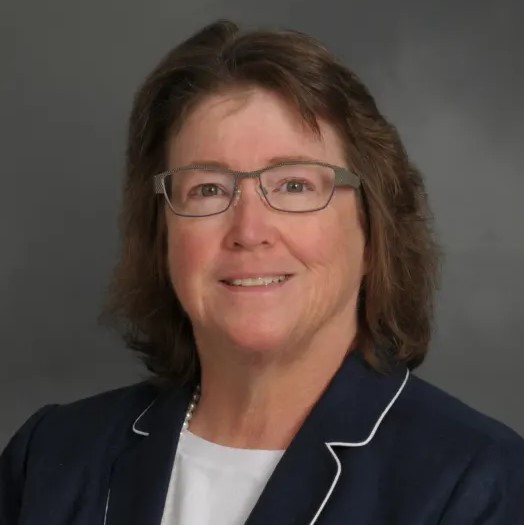Target Audience
This activity was developed for medical geneticists, metabolic disease specialists, along with other clinicians providing care to patients with acid sphingomyelinase deficiency (ASMD) including pediatricians, internists, pulmonologists, neurologists, hepatologists, gastroenterologists, hematologists and genetic counselors.
Learning Objectives
At the conclusion of this activity, participants should be better able to:
- Describe the disease spectrum of ASMD disease subtypes A, B, and A/B
- Diagnose patients suspected of having ASMD
- Perform comprehensive clinical monitoring of patients with ASMD
- Summarize the ongoing clinical trials and research that are evaluating new treatments for ASMD
Faculty
Margaret M. McGovern, MD, PhD Knapp Chair in Pediatrics and Dean for Clinical Affairs
Renaissance School of Medicine at Stony Brook University
Vice President for Clinical Programs and Strategy
Stony Brook Medicine
Stony Brook, New York
Pramod Mistry, MD, PhD Professor of Medicine and of Pediatrics
Professor of Cellular & Molecular Physiology
Yale School of Medicine
Director of Yale Lysosomal Disease Center and Gaucher Disease Treatment Center
New Haven, Connecticut
Accreditation
The Annenberg Center for Health Sciences at Eisenhower is accredited by the Accreditation
Council for Continuing Medical Education to provide continuing medical education for
physicians.
The Annenberg Center for Health Sciences at Eisenhower designates
this enduring activity for a maximum of
1 AMA PRA Category 1 Credit™. Physicians should claim only the credit commensurate with the extent of their participation
in the activity.

Annenberg Center for Health Sciences at Eisenhower is accredited
as a provider of nursing continuing professional development by the American Nurses
Credentialing Center’s Commission on Accreditation.
A maximum of
1 contact hour, including 0.25 pharmacology hours,
may be earned for successful completion of this activity.
Disclosure Statement
It is the policy of the Annenberg Center for Health Sciences to ensure fair balance,
independence, objectivity, and scientific rigor in all programming. All individuals with the
potential to impact the content of an accredited education activity are expected to identify and
reference off-label product use and disclose relationships with ACCME-defined ineligible
companies.
The Annenberg Center for Health Sciences assesses relevant relationships with its instructors,
planners, managers, and other individuals who are in a position to control the content of CE
activities. All relevant relationships that are identified are thoroughly vetted by the
Annenberg Center for fair balance, scientific objectivity of studies utilized in this activity,
and patient care recommendations. The Annenberg Center is committed to providing its learners
with high-quality CE activities and related materials that promote improvements or quality
in healthcare and not a specific proprietary business interest of a commercial interest.
In accordance with the Accreditation Council for Continuing Medical Education Standards, parallel
documents from other accrediting bodies, and Annenberg Center for Health Sciences policy, the
following disclosures have been made:
Disclosures
Margaret M. McGovern, MD, PhD No relationships to disclose.
Pramod Mistry, MD, PhD Research Support: Sanofi-Genzyme
The faculty for this enduring activity has disclosed that there will be
no
discussion about the use of products for non-FDA approved applications.
Additional Content Planners
Eugene Cullen, MD (Peer Reviewer)No significant relationships to disclose.
Amber Lambert, MSN, FNP-C, DNP (Nurse Reviewer)No significant relationships to disclose.
Jessica Martin, PhD (Medical Writer)No significant relationships to disclose.
Annenberg Center for Health Sciences
Staff at the Annenberg Center for Health Sciences at Eisenhower have no relevant financial
relationships to disclose.
All of the financial relationships listed for these individuals have been mitigated.
The ideas and opinions presented in this educational activity are those of the faculty and do not
necessarily reflect the views of the Annenberg Center and/or its agents. As in all educational
activities, we encourage practitioners to use their own judgment in treating and addressing the
needs of each individual patient, taking into account that patient's unique clinical situation.
The Annenberg Center disclaims all liability and cannot be held responsible for any problems
that may arise from participating in this activity or following treatment recommendations
presented.
This activity is supported by an educational grant from Sanofi Genzyme.
This activity is an online enduring material. Successful completion is achieved by reading and/or viewing the material,
reflecting on its implications in your practice, and completing the assessment
component.
The estimated time to complete the activity is
1.0 hour.
This activity was originally released on
2022-05-27 and is eligible for credit through
2023-05-27.
Our Policy on Privacy
Annenberg Center for Health Sciences respects your privacy. We don’t share information you
give us, or have the need to share this information in the normal course of providing the
services and information you may request. If there should be a need or request to share this
information, we will do so only with your explicit permission. See Privacy Statement and other
information at https://annenberg.net/pages/privacyPolicy.php
Contact Information
Annenberg Center for Health Sciences
39000 Bob Hope Drive
Dinah Shore Building
Rancho Mirage, CA 92270
ce@annenberg.net
Phone: 760-773-4500
Fax: 760-773-4513
8 AM – 5 PM,
Pacific Time, Monday – Friday


